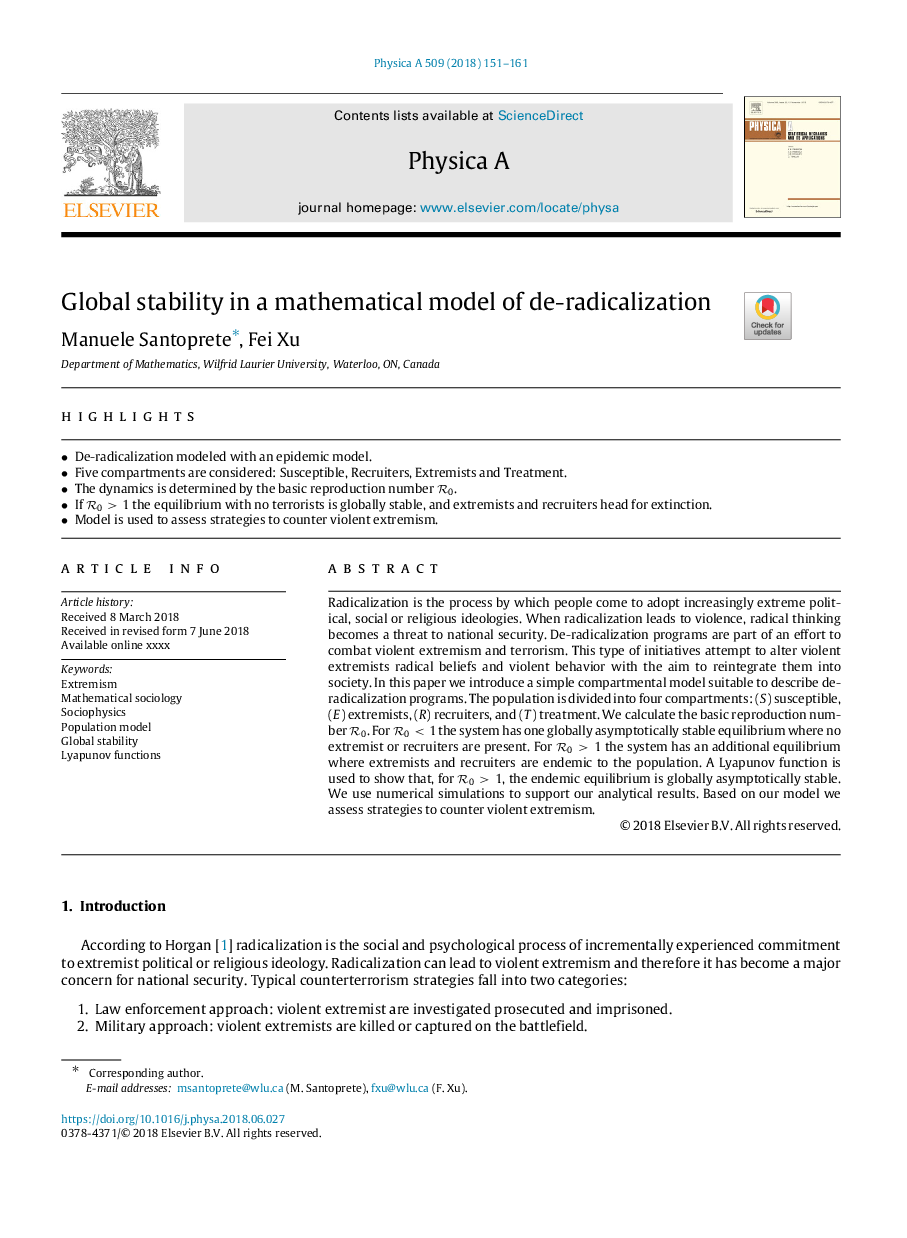| Article ID | Journal | Published Year | Pages | File Type |
|---|---|---|---|---|
| 7374935 | Physica A: Statistical Mechanics and its Applications | 2018 | 11 Pages |
Abstract
Radicalization is the process by which people come to adopt increasingly extreme political, social or religious ideologies. When radicalization leads to violence, radical thinking becomes a threat to national security. De-radicalization programs are part of an effort to combat violent extremism and terrorism. This type of initiatives attempt to alter violent extremists radical beliefs and violent behavior with the aim to reintegrate them into society. In this paper we introduce a simple compartmental model suitable to describe de-radicalization programs. The population is divided into four compartments: (S) susceptible, (E) extremists, (R) recruiters, and (T) treatment. We calculate the basic reproduction number R0. For R0<1 the system has one globally asymptotically stable equilibrium where no extremist or recruiters are present. For R0>1 the system has an additional equilibrium where extremists and recruiters are endemic to the population. A Lyapunov function is used to show that, for R0>1, the endemic equilibrium is globally asymptotically stable. We use numerical simulations to support our analytical results. Based on our model we assess strategies to counter violent extremism.
Related Topics
Physical Sciences and Engineering
Mathematics
Mathematical Physics
Authors
Manuele Santoprete, Fei Xu,
